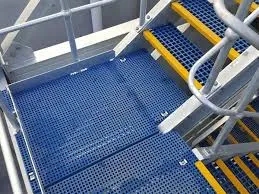
-
 Afrikaans
Afrikaans -
 Albanian
Albanian -
 Amharic
Amharic -
 Arabic
Arabic -
 Armenian
Armenian -
 Azerbaijani
Azerbaijani -
 Basque
Basque -
 Belarusian
Belarusian -
 Bengali
Bengali -
 Bosnian
Bosnian -
 Bulgarian
Bulgarian -
 Catalan
Catalan -
 Cebuano
Cebuano -
 China
China -
 China (Taiwan)
China (Taiwan) -
 Corsican
Corsican -
 Croatian
Croatian -
 Czech
Czech -
 Danish
Danish -
 Dutch
Dutch -
 English
English -
 Esperanto
Esperanto -
 Estonian
Estonian -
 Finnish
Finnish -
 French
French -
 Frisian
Frisian -
 Galician
Galician -
 Georgian
Georgian -
 German
German -
 Greek
Greek -
 Gujarati
Gujarati -
 Haitian Creole
Haitian Creole -
 hausa
hausa -
 hawaiian
hawaiian -
 Hebrew
Hebrew -
 Hindi
Hindi -
 Miao
Miao -
 Hungarian
Hungarian -
 Icelandic
Icelandic -
 igbo
igbo -
 Indonesian
Indonesian -
 irish
irish -
 Italian
Italian -
 Japanese
Japanese -
 Javanese
Javanese -
 Kannada
Kannada -
 kazakh
kazakh -
 Khmer
Khmer -
 Rwandese
Rwandese -
 Korean
Korean -
 Kurdish
Kurdish -
 Kyrgyz
Kyrgyz -
 Lao
Lao -
 Latin
Latin -
 Latvian
Latvian -
 Lithuanian
Lithuanian -
 Luxembourgish
Luxembourgish -
 Macedonian
Macedonian -
 Malgashi
Malgashi -
 Malay
Malay -
 Malayalam
Malayalam -
 Maltese
Maltese -
 Maori
Maori -
 Marathi
Marathi -
 Mongolian
Mongolian -
 Myanmar
Myanmar -
 Nepali
Nepali -
 Norwegian
Norwegian -
 Norwegian
Norwegian -
 Occitan
Occitan -
 Pashto
Pashto -
 Persian
Persian -
 Polish
Polish -
 Portuguese
Portuguese -
 Punjabi
Punjabi -
 Romanian
Romanian -
 Russian
Russian -
 Samoan
Samoan -
 Scottish Gaelic
Scottish Gaelic -
 Serbian
Serbian -
 Sesotho
Sesotho -
 Shona
Shona -
 Sindhi
Sindhi -
 Sinhala
Sinhala -
 Slovak
Slovak -
 Slovenian
Slovenian -
 Somali
Somali -
 Spanish
Spanish -
 Sundanese
Sundanese -
 Swahili
Swahili -
 Swedish
Swedish -
 Tagalog
Tagalog -
 Tajik
Tajik -
 Tamil
Tamil -
 Tatar
Tatar -
 Telugu
Telugu -
 Thai
Thai -
 Turkish
Turkish -
 Turkmen
Turkmen -
 Ukrainian
Ukrainian -
 Urdu
Urdu -
 Uighur
Uighur -
 Uzbek
Uzbek -
 Vietnamese
Vietnamese -
 Welsh
Welsh -
 Bantu
Bantu -
 Yiddish
Yiddish -
 Yoruba
Yoruba -
 Zulu
Zulu
fiberglass scrubber
The Importance of Fiberglass Scrubbers in Industrial Applications
Fiberglass scrubbers have emerged as essential tools in various industrial applications, particularly for air and gas pollution control. These devices are designed to efficiently remove harmful pollutants from emissions before they are released into the atmosphere. By utilizing a combination of fiberglass materials and innovative design, these scrubbers offer numerous advantages that make them preferable for industries aiming to meet stringent environmental regulations.
First and foremost, fiberglass scrubbers are highly resistant to corrosive materials. Traditional scrubbers made from metal can be prone to rust and deterioration, especially when exposed to acidic or alkaline substances. In contrast, fiberglass is not only lightweight but also possesses superior chemical resistance, ensuring a longer lifespan and reduced maintenance costs. This durability makes fiberglass scrubbers particularly suitable for industries such as chemical processing, power generation, and waste treatment, where aggressive pollutants are commonplace.
Another significant benefit of fiberglass scrubbers is their versatility. They can be customized to address specific pollutants, including volatile organic compounds (VOCs), sulfur dioxide (SO2), and hydrogen sulfide (H2S). The design of these scrubbers allows for a variety of scrubbing solutions, such as caustic soda for neutralizing acids or alkaline solutions to target specific emissions. This adaptability ensures that industries can tailor their pollution control systems to meet their unique operational needs while complying with environmental regulations.
fiberglass scrubber

In terms of efficiency, fiberglass scrubbers are known for their effective mass transfer capabilities. The design of these systems typically incorporates structured packing or spray towers that enhance contact between the gas and scrubber liquid. This increased contact area improves the efficiency of pollutant removal, enabling businesses to achieve lower emission levels. Moreover, fiberglass scrubbers can operate at various flow rates and temperatures, making them suitable for a wide range of industrial processes.
Installation and operation of fiberglass scrubbers also present significant advantages. Unlike traditional systems, fiberglass scrubbers can often be installed more easily, thanks to their lighter weight and modular design. This can lead to reduced installation time and associated costs. Moreover, with advancements in technology, many of these scrubbers are equipped with controls and monitoring systems that allow for real-time performance tracking, ensuring optimal operation.
However, it is important to consider a few aspects when implementing fiberglass scrubbers. While they offer numerous advantages, their initial investment cost can be higher compared to traditional scrubbers. Therefore, industries should conduct a cost-benefit analysis to ensure that the long-term savings, driven by reduced maintenance and increased efficiency, justify the initial expenditure.
In conclusion, fiberglass scrubbers represent a significant advancement in industrial pollution control technology. Their resistance to corrosion, versatility, and efficiency make them an ideal choice for industries looking to minimize their environmental impact. As regulations become increasingly stringent and the global focus on sustainability intensifies, investing in fiberglass scrubbers can be a strategic decision for companies seeking to enhance their compliance and operational efficiency while protecting the environment.
Latest news
-
Exploring the Benefits of Top Hammer Drifter Rods for Enhanced Drilling PerformanceNewsJun.10,2025
-
High-Precision Fiberglass Winding Machine for GRP/FRP Pipe Production – Reliable & Efficient SolutionsNewsJun.10,2025
-
FRP Pipes & Fittings for Shipbuilding - Corrosion-Resistant & LightweightNewsJun.09,2025
-
Premium FRP Flooring Solutions Durable & Slip-ResistantNewsJun.09,2025
-
Premium Fiberglass Rectangular Tanks Durable & Lightweight SolutionNewsJun.09,2025
-
Tapered Drill String Design Guide Durable Performance & UsesNewsJun.09,2025









